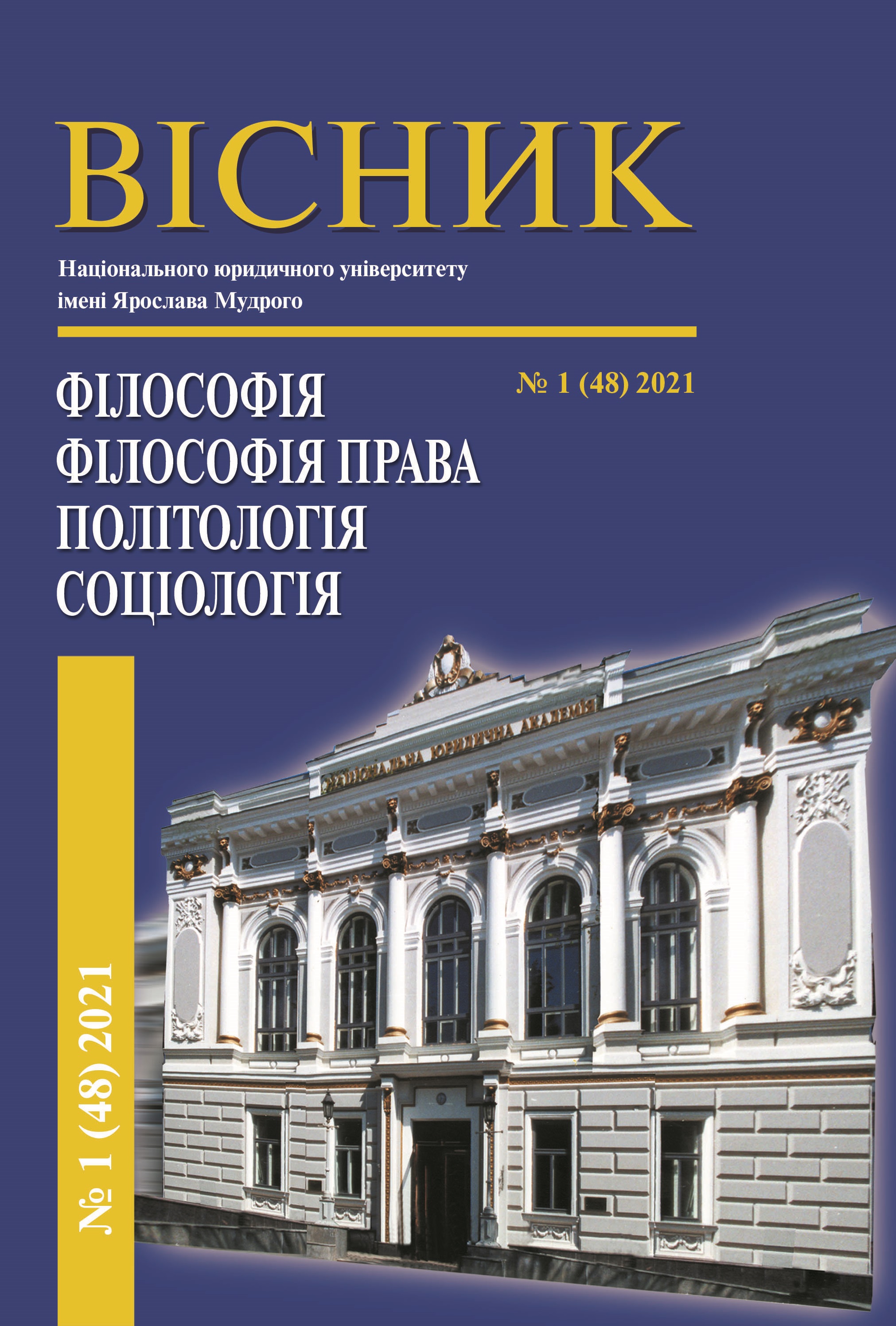ДИСКУРС З ПРИВОДУ КАТЕГОРІЙ «УНІВЕРСАЛЬНЕ ГРОМАДЯНСТВО», «ПРАВА ЛЮДИНИ» І «ГЛОБАЛІЗАЦІЯ»
DISCOURSE ON THE CATEGORIES «UNIVERSAL CITIZENSHIP», «HUMAN RIGHTS» AND «GLOBALIZATION»
Author(s): Diego Felipe Arbelaez-Campillo, Magda Julissa Rojas-Bahamon, Oleg Gennadiyevich DanilyanSubject(s): Philosophy, Human Rights and Humanitarian Law, Social Philosophy, Globalization
Published by: Національний юридичний університет імені Ярослава Мудрого
Keywords: critical thinking in Latin America; universal citizenship; human rights; globalization;
Summary/Abstract: Problem setting. Although modern humanity has proclaimed the universality of human dignity and desperately upholds this value, which is fully in harmony with freedom, equality and fraternity, the truth is that in reality it has not yet been able to go beyond the status of a citizen of the nation state in its legal and political conventions. . In this sense, a very important issue is the representation of the real situation around the categories of «universal citizenship», «human rights» and «globalization» in the midst of the geopolitical conflict in Latin America caused by the persecution of 21st century socialism. Paper objective. This critical essay aims to discuss the real significance of such political and legal categories as «universal citizenship», «human rights» and «globalization» in the midst of the geopolitical conflict that led to the persecution of 21st century socialism in Latin America. Methodology. The methodological field of the research uses documentary observation and dialectical hermeneutics, which help to compare and reconcile categories with different semantic contexts to reconstruct their true meaning. The technique of writing this research was the methodological procedure of the hermeneutic circle, which is a sequential analysis of numerous written documentary sources, combined in a kind of dialogic context with hidden messages that can be read between the lines, as well as interpretive theories and critical thinking. Paper main body. There is much in common between the contemporary political and philosophical programs of the Western cultural space, of which Latin Americans are a part, and the ideas of universal citizenship, globalization, and human rights in a spirit of deep militant universalism that function fully today not only as abstract theories at the disposal of peoples and nations who continue to work to improve their living conditions and strengthen their freedom to exist and act in a better world. As for the tradition of human rights as a modern expression of natural law, it dates back to ancient times and even dates back to the great religions, which in their own way developed and substantiated the idea of human dignity. The history of the Institute of Human Rights has a pronounced anthropocentric character and deserves to be expanded in accordance with the geopolitical realities of the modern world, in order to protect the indisputable value of all life forms affected by such phenomena as global warming and the associated greenhouse effect. economic growth that requires technological and industrial modernization. For its part, «globalization with a human face» means the ability to interconnect and enrich not only material andfinancial resources, due to the insatiability of international markets, but also the cycle of knowledge and people required by modern world democracies to strengthen their social and human capital. In this context, the idea of global or universal citizenship, while seeming utopian, is of paramount importance as it broadens the political phenomenon of citizenship, which is vital to modern democracies or polyarchies, forgetting the tradition of history ruled by supreme forces and structures. Although, according to K. Popper, already the historicist concept assigned a fundamental role in building a reality conducive to the exercise of freedom, the citizen, conscious and active. Thus, if globalization is reduced purely to the internationalization of capital and selective human and technological resources solely in the interests of corporate elites and does not turn into a globalization of social welfare and dignity - a process in which universal citizenship would be a logical consequence, then partial globalization, which can do little to promote an open society in the 21st century. Conclusions of the research. The study concludes that if globalization is reduced to the internationalization of capital and individual human and technological resources for the benefit of the corporate elite and does not extend to the globalization of social welfare and dignity, where universal citizenship would be a logical consequence, such globalization is unlikely to contribute building an open society of the XXI century.
Journal: Вісник НЮУ імені Ярослава Мудрого. Серія: Філософія, філософія права, політологія, соціологія
- Issue Year: 48/2021
- Issue No: 1
- Page Range: 11-33
- Page Count: 23
- Language: Ukrainian

